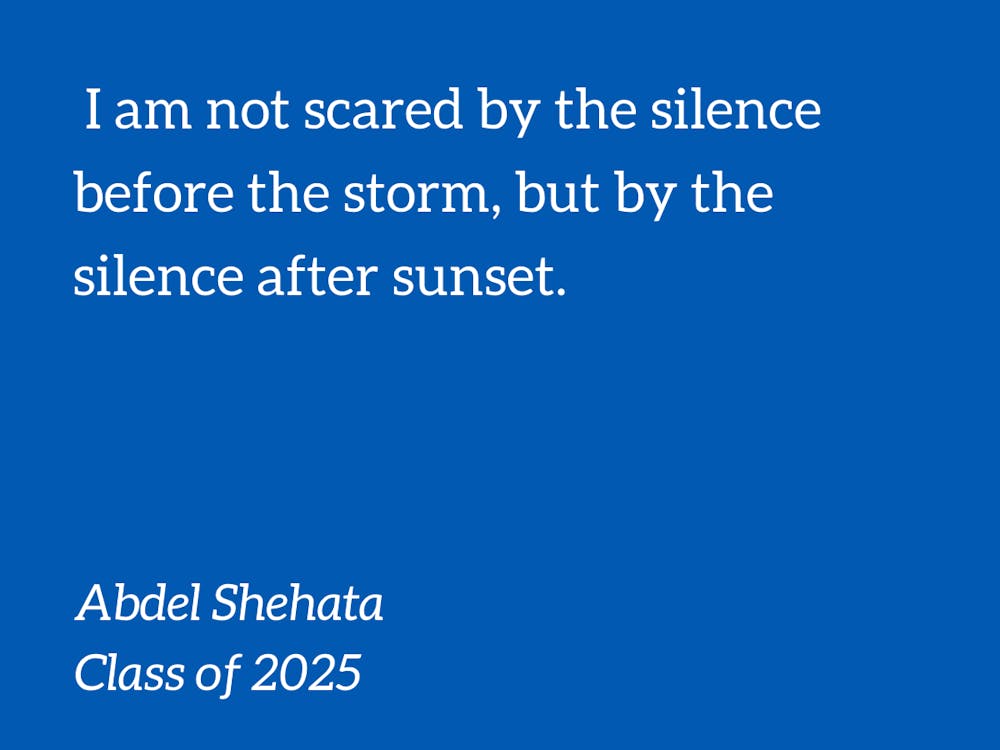Content warning: This article contains mentions of suicide.
I am not scared by the silence before the storm, but by the silence after sunset.
Ironically, I have only thought about killing myself after the happiest moments in my life, not the saddest. Through the saddest moments of my life, I understood the reasons why I was somber, but feeling depressed after a happy moment always left me confused. A confusion that only fed into the void and emptiness I was feeling after a joyous moment.
Most of the happiest moments in my life have been with other people: friends, family and companions. But in the moments that followed I was usually alone. Through this loneliness, an empty feeling always starts creeping up on me, bringing with it a horde of intrusive thoughts. My time with the people I love is always on a timer, am I ever going to experience those highs again with my friends? I know that those thoughts are illogical but when left alone with my head, I can never squash them. On their own, they aren’t fatal, but they open the door for my insecurities to come in. Do my loved ones really care about me, have I reached my peak and is my life downhill from now on?. Those thoughts only stop when my tiredness gets the best of me and I fall asleep. The next day I wake up, everything is normal again.
What I am experiencing after a happy event is usually referred to as a “happiness hangover." Through repeated happiness hangovers, my mentality started changing for the worse. Like an alcoholic, I did the most logical thing to stop my hangovers: I stopped “drinking." Of course, I didn’t just stop experiencing happiness; instead I became more distant from my friends and family. I declined my friends’ invitations to hang out or go somewhere for mindless entertainment. Eventually, they stopped inviting me, and that's when I realized I messed up. I realized that I let my fear of a “happiness hangover” steer me into a worst state: constant loneliness. Now, I had to dig myself out of this hole that I found myself in.
Sadly, there isn’t a 12 step program on how to reconnect with your friends and family. But I knew that the first step was to deal with the trigger. To deal with a happiness hangover, I began addressing the intrusive thoughts that it brought. I started by writing down every intrusive thought I could think of. Then I wrote the logical thought corresponding with each intrusive thought. For example, for the thought that I am always on a timer with my loved ones, I wrote that I should embrace my time with my loved ones since it's limited, and that thinking about when the timer ends is useless since I can’t stop it or slow it down. Rinse and repeat this process for the other thoughts, and while those thoughts didn’t leave completely, at least I had a remainder to look up to.
My next step was clear to me: I needed to take initiative when it comes to hanging out with my friends. Thus, I started planning stuff to do with my friends, and even tried to make some new friends. Eventually, I was out of the hole that is loneliness. My happiness hangovers didn’t completely stop though. So I did my best to avoid being completely alone after a happy event, which somewhat helped. But most importantly I had an epiphany that life is like a train ride, where I need to enjoy my time at the train stops and make the most out of it before continuing journey. Thus, I try to enjoy whatever time I have with my loved ones before either they or I have to get on the train of life again.
I might have dealt with my happiness hangovers, but I am still a long way from dealing with my insecurities. But for now, rather than overthink as I tend to do, I will simply savor my victory.
Abdel Shehata is a Trinity first-year. His column typically runs on alternate Thursdays.
Get The Chronicle straight to your inbox
Sign up for our weekly newsletter. Cancel at any time.

